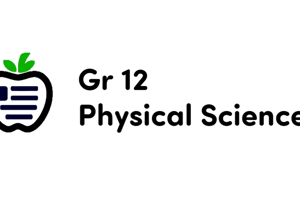Podcast
Questions and Answers
Which molecule has a higher boiling point?
Which molecule has a higher boiling point?
- E-1,2-dichloroethene
- Z-1,2-dichloroethene (correct)
- The boiling points are the same
- None of the above
In which molecule are the polar C-Cl bonds on the same side of the molecule?
In which molecule are the polar C-Cl bonds on the same side of the molecule?
- E-1,2-dichloroethene
- Z-1,2-dichloroethene (correct)
- Both molecules
- None of the above
Which intermolecular forces are present in both E-1,2-dichloroethene and Z-1,2-dichloroethene?
Which intermolecular forces are present in both E-1,2-dichloroethene and Z-1,2-dichloroethene?
- Permanent dipole-dipole attractions only
- Ionic bonding
- Van der Waals forces and hydrogen bonding
- Van der Waals forces only (correct)
What property causes Z-1,2-dichloroethene to be polar?
What property causes Z-1,2-dichloroethene to be polar?
What effect does having higher priority atoms in a molecule have on its physical properties?
What effect does having higher priority atoms in a molecule have on its physical properties?
What is the molecular formula used for?
What is the molecular formula used for?
In organic chemistry, what does a functional group determine?
In organic chemistry, what does a functional group determine?
What is the general formula used for in organic chemistry?
What is the general formula used for in organic chemistry?
How are saturated hydrocarbons different from unsaturated hydrocarbons?
How are saturated hydrocarbons different from unsaturated hydrocarbons?
What is the purpose of a skeletal formula in organic chemistry?
What is the purpose of a skeletal formula in organic chemistry?
How do homologous series contribute to organic chemistry?
How do homologous series contribute to organic chemistry?
In a homologous series, how do the members differ from each other?
In a homologous series, how do the members differ from each other?
Which functional group takes the suffix in nomenclature according to the order of precedence?
Which functional group takes the suffix in nomenclature according to the order of precedence?
When compounds contain more than one functional group, which group takes the suffix?
When compounds contain more than one functional group, which group takes the suffix?
Which functional group's nomenclature doesn't follow the general precedence rule?
Which functional group's nomenclature doesn't follow the general precedence rule?
What determines whether a functional group is named using a prefix or a suffix in its nomenclature?
What determines whether a functional group is named using a prefix or a suffix in its nomenclature?
Which type of bonds only take the suffix form in their nomenclature?
Which type of bonds only take the suffix form in their nomenclature?
What is the correct suffix ending for aldehydes?
What is the correct suffix ending for aldehydes?
In an aldehyde, where is the C=O bond typically located?
In an aldehyde, where is the C=O bond typically located?
How are aldehydes with two functional groups named?
How are aldehydes with two functional groups named?
What is the correct prefix for the OH group in aldehydes?
What is the correct prefix for the OH group in aldehydes?
What is the general ending for ketones?
What is the general ending for ketones?
When do ketones require numbering in their chain?
When do ketones require numbering in their chain?
What is the correct definition of homolytic fission?
What is the correct definition of homolytic fission?
Which type of bond breaking produces free radicals?
Which type of bond breaking produces free radicals?
What characterizes a free radical?
What characterizes a free radical?
Why do most organic reactions occur via heterolytic fission?
Why do most organic reactions occur via heterolytic fission?
In terms of bond breaking, what does heterolytic fission involve?
In terms of bond breaking, what does heterolytic fission involve?
What happens when a bond breaks by homolytic fission?
What happens when a bond breaks by homolytic fission?
Flashcards are hidden until you start studying




